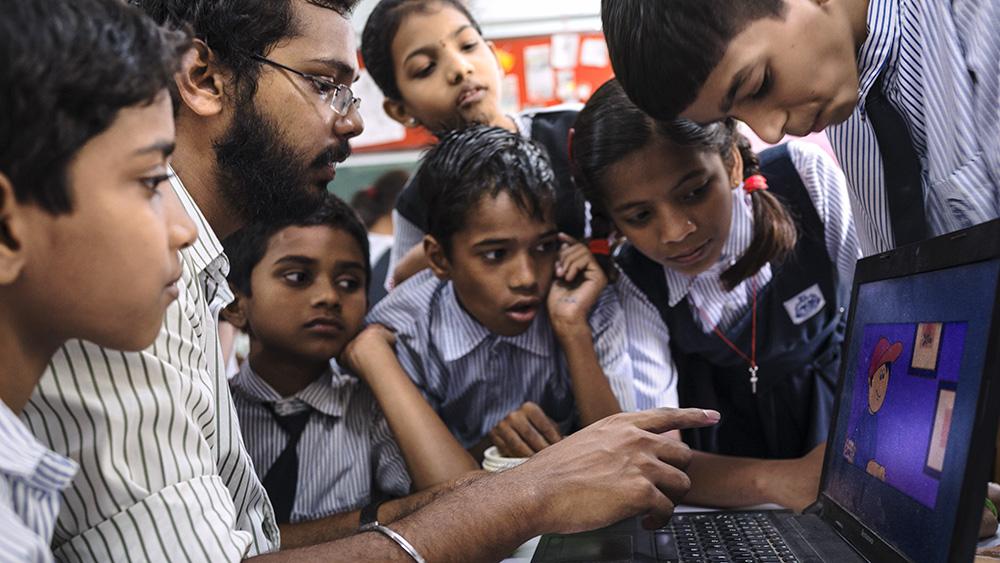Teach For All at CIES 2021: Developing Leadership at All Levels of the Education Sector

Education inequality and the global learning crisis are complex and systemic problems with many root causes. Yet, often the most studied solutions to these problems focus on discrete interventions, innovations, policies, and programs while overlooking a potentially important strategy for driving long-term change: investing in the development of local leadership capacity at all levels of the system. A number of researchers and practitioners have begun to build the evidence base around how to develop leadership mindsets, skills, and capabilities, and the role of leadership in increasing the quality of education and improving student outcomes.
To highlight and discuss this research, Teach For All organized a panel of independent researchers and organizations at the Virtual Comparative International Education Symposium (vCIES) 2021 on April 26, 2021 to discuss insights into and best practices in leadership development at all levels of the educational system—from student leadership all the way to ministry level officials—from five different global programs investing in a people first approach.
The panel’s first topic of discussion was student leadership. Hellen Namisi explained how Educate! defines student leadership, how to develop this leadership, and how they monitor and evaluate their intentional efforts to cultivate it. She shared new results from a 2019 randomized controlled trial experiment which demonstrates the impact of Educate!’s work on key leadership skills like persuasion, creativity, and other prosocial behaviors.
Katharine Conn, Senior Research Scientist at the Consortium for Policy Research in Education at Columbia University’s Teachers College, discussed research investigating whether Teach For All network partners are increasing leadership capacity in local systems through its two-year teaching fellowships. She shared evidence of the leadership effects of Teach For India on teachers’ career trajectories, demonstrating that Teach For India fellows have an increased likelihood to work in the education sector in the long-term (fellows were 55 percentage points more likely to stay in the education sector compared to similar applicants to the Teach For India program who were not selected). In a 2018 paper, Cecilia Hyunjung Mo and Conn also found that alumni of Teach For America are significantly more likely to feel more empathy towards marginalized groups in society, from both racial and class perspectives, compared to similar Teach For America applicants who were not accepted to the program, demonstrating impact on career paths, beliefs, and soft-skills as a result of their two years in the classroom.
Sameer Sampat, co-founder of Global School Leaders and an alumnus of Teach For America, debunked common myths about the impact of school leadership on educational outcomes, such as the belief that school leadership has a weak influence on student learning. The Global School Leader’s evidence review of empirical research in the global south about the emerging findings has helped to solidify the important relationship between school leader background, skills, and training and support and improved student outcomes.
The panel then shifted to a discussion on evidence of leadership among mid-tier professionals such as pedagogical coaches or supervisors, and upper tier education administrators such as ministry officials and district education officers. Chloé Chimier from UNESCO IIEP and Ella Page from the Educational Development Trust discussed new findings and insights from multiple case studies of education systems on the effects of investing in instructional leadership, teacher mentors, and other middle-tier leadership, pointing to the importance of collaboration, continuous professional development, and feedback processes in driving teacher development.
Finally, Safiya Husain from STiR Education shared new research on the motivations, mindsets, and behaviors of central and district level education officials in India and Indonesia. The research demonstrated the importance of investing in top-tier officials’ skills in cultivating relationships and mentorship, and allocating adequate resources and time to developing processes for providing feedback on top-tier officials' role responsibilities and how they contribute to educational outcomes.
Dr. Karen Mundy, Professor of Comparative and International Education at the University of Toronto, chaired the discussion with panelists, challenging researchers of the effects of intentional efforts to cultivate leadership to continue to learn more about the positive deviants (exceptional examples) where leadership has led to improved student outcomes. Finally, the panel discussed the need for leadership development to be complimented by strategies to develop feedback loops to facilitate learning across all levels of leadership (for example, school leader and teacher, teacher and student, top-tier and mid-tier professionals) and the need for additional research and new methods beyond experimental or quasi-experimental impact evaluation to unpack these effects.
Learn more about CIES 2021 and explore more research about the impact of Teach For All network partners.



